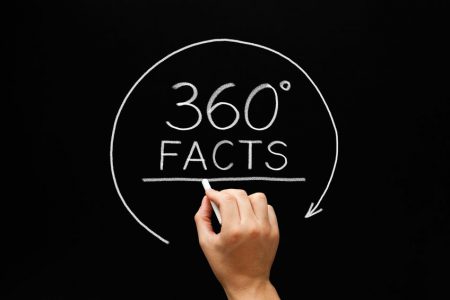
Mistakes in Word-by-Word Translation and Degrees of “Rightness” in Translation
by Chad Richardson
October 5th, 2018
Many people think that translation is a simple, mechanical process. You take each word in the source language, figure out its meaning in the destination language and then write down that word in your translation. But if this was how it worked, then anyone would be able to translate from one language to another with the help of a dictionary.
Different Languages, Different Structures
If you have ever tried word-for-word translation, you’ll know that the result tends to be quite ludicrous. This is because different languages function in different ways. They have different structures. For example, to negate a sentence in English, you only have to use the word “not.” So “He can speak well” becomes “He can not speak well.” But to negate the same sentence in French, you have to add “ne” before the verb and “pas” after the verb. So “Il parle bien” becomes “Il ne parle pas bien.” Hence, the structure of the language is different.
Examples of Word-by-Word Translation
Sometimes, you might get lucky in word-for-word translation. For example, “He can speak well” becomes “Il peut parler bien” which does make sense.
But, in other cases which are more complex, the result of word-by-word translation makes no sense at all. For example, consider the first sentence of this blog post: “Many people think that translation is a simple, mechanical process.” Using word-for-word translation, one comes up with “Beaucoup gens pense cette traduction est une simple, mecanique processus.” This word-by-word translation was just done using Google translate and it is quite obvious that it was done by someone who doesn’t speak French.
Mistakes in Word-by-Word Translation
What are the mistakes in the above sentence? To begin with, the word “beaucoup” which means “many” should always have “de” following it. Plus, the verb “pense” does not agree with the subject; it should be “pensent” which is plural. “Cette” is an incorrect translation of “that”; it should be “que.” And there are many other grammatical oddities in this sentence.
Degrees of “Rightness” in Translation
The following sentence would be a far better translation: “Beaucoup de gens pensent que la traduction est un processus simple et mécanique.” Even this sentence, though grammatically sound, may come across as awkward and it might be better to say, “Beaucoup de gens pensent que la traduction est simple et mécanique.”
In either case, it’s important to remember that nothing is 100% right or wrong when it comes to language. There are degrees of rightness and our aim is to get your translation as right as possible so that when someone who is fluent in the destination language reads it, it makes intuitive sense to them.
Contact us for the best possible translation of your document.
Related Articles
Smart, Fun, and Fascinating Facts About the Use of Sign Language
Also known as ASL (or American Sign Language), this method of communicating with those who are either completely deaf or struggle with their hearing has been around for over two centuries. On the surface, watching those who silently speak, understand, and communicate with others using their hands may appear foreign to most, but it’s actually…
3 Traits for Healthier Meetings and Happier Employees
Have you ever sat in a meeting where you were suddenly jolted out of your daydream when someone asked for your opinion? Maybe you remember that meeting that seemed to drag on with no end in sight. Maybe you don’t remember the meeting at all. Did you ever leave a meeting wondering if you had…
Taking a Break to Manage Unsustainable Accelerated Growth
While growth is the ultimate reason people get into business, sometimes growing or expanding too quickly could lead to some unexpected complications. The challenge for any business owner is not to limit growth but to manage growth and capitalize on it if possible. The effects of unsustainable accelerated growth on your business could include: Having…
here
for you
We’d love to learn more about your translation and localization needs.